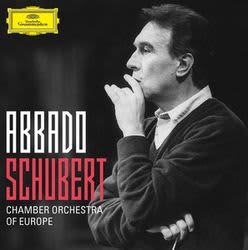Περιγραφή
Καλλιτέχνες
The new album of the Bach Consort Vienna, Vidala, focuses on Latin America during the years of colonization, where in the 16th century three different cultures start intermingling: Natives, Spanish conquistadors and African slaves. From Mexico to Argentina there is an explosion of new dances with exciting names like Sarabanda, Zamacueca, Pasacalle and Folia. The recording features instrumental arrangements of traditional melodies and songs from Latin America, performed by Argentinian tenor Francisco Brito, as well as works by Italian composers such as Alessandro Piccinini, Tarquinio Merula, Biagio Marini and Antonio Vivaldi. The Bach Consort Vienna with musical director Rubén Dubrovsky, since its formation in 1999 widely renowned for their authentic performance practice, takes on a journey through time to the roots of European Baroque. Founded in 1999, the Bach Consort Vienna under the baton of Rubén Dubrovsky soon grew into one of the most important Baroque Ensembles of Austria. Next to several performances at the Vienna Musikverein, the ensemble is ever-present on different European concert stages. Internationally renowned artists, such as Bernarda Fink and Christophe Coin, are closely connected to the Bach Consort Vienna as guest soloists. The ensemble has always remained faithful to its original conceptual idea of chamber music. The basic members of the Bach Consort Vienna, together with co-founder Agnes Stradner, can be heard in different kinds of chamber music casts and captivate their audience either in a small but also larger group or cast by their transparency of sound and a personal way of expression. The number of the cast is constantly chosen under the motto «as small as it still makes sense», therefore even in pieces with a somewhat larger cast, one can still experience the musicianship of every individual member of the ensemble. With an intense involvement of the oeuvre of Johann Sebastian Bach, the ensemble found its very own artistic language. Rubén Dubrovsky’s academic research about traditional South American music and its shared roots with European Baroque music also influenced the rhythmic quality of the ensemble. An important aspect of the ensemble’s performances has also been the rediscovery of oeuvres of renowned Baroque composers. In 2010, in the composer’s anniversary year, the Bach Consort Vienna revived an oratorio by Johann Joseph Fux, called Cristo nell’orto as part of the OsterKlang Festival Vienna and Psalm Graz, as well as Easter music of the Vienna court composer Francesco Bartolomeo Conti, with countertenor Franco Fagioli as soloist. Widely acclaimed was the 2011 premiere performance of Pergolesi’s La Maddalena al sepolcro at the Ancona Cathedral which was recorded by Unitel Classica as part of the complete Pergolesi oeuvre recordings on DVD. In 2013, Rubén Dubrovsky’s first edition of Porpora’s masterpiece Polifemo was presented at the Theater an der Wien with great success. |









